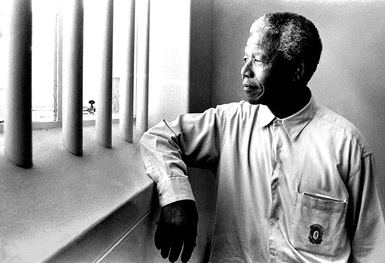Nelson Mandela, international icon of peace and revered statesman who maneuvered South Africa from the chains of apartheid through multi-racial democracy, died Dec. 5 at age 95.
His defiance of white minority rule and consequential thirty year incarceration for fighting against segregation focused the world’s attention on apartheid, the legalized racial discrimination enforced by the South African government until 1994.
Imprisoned for nearly three decades for his fight against white minority rule, Mandela emerged determined to use his prominence and power to bring down apartheid while avoiding a civil war.
“The time for the healing of the wounds has come. The moment to bridge the chasms that divide us has come.,” Mandela said in his acceptance speech when he became South Africa’s first black president in 1994.
In 1993, Mandela received the Nobel Peace Prize, an honor he shared with F.W. de Klerk, the white Afrikaaner leader who freed him from prison three years earlier and negotiated the end of apartheid.
He formally left public life in 2004 before his 86th birthday, telling his adoring countrymen: “Don’t call me, I’ll call you,” but he remained one of the worlds most revered public figures, combining celebrity sparkle with an unwavering message of freedom, respect and human rights.
Mandela battled health issues in recent months, including a recurring lung infection that led to numerous hospitalizations.


